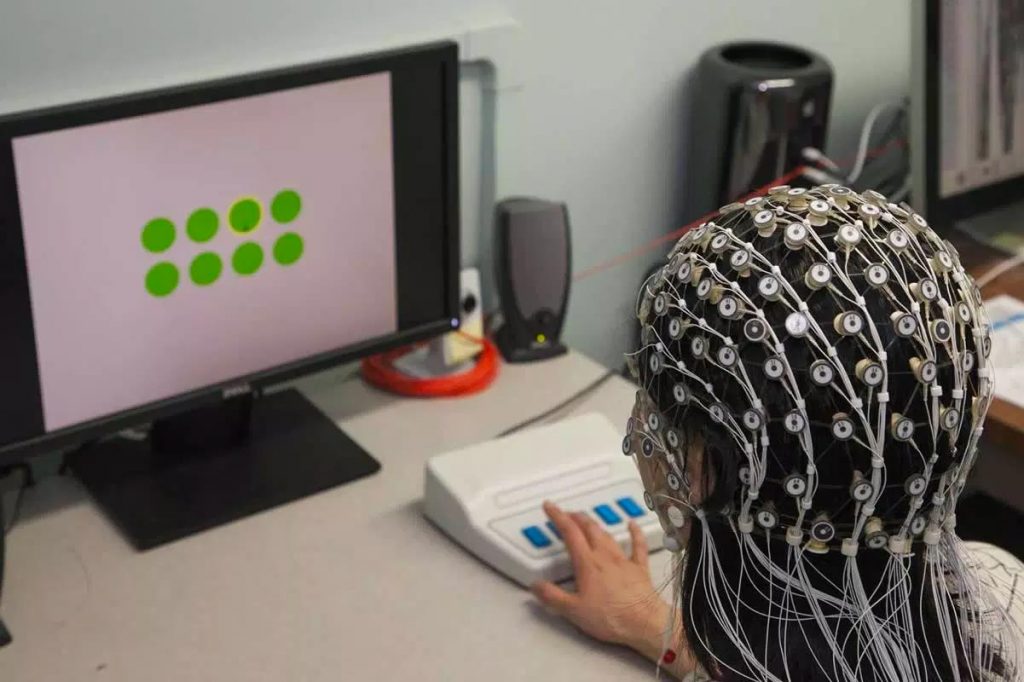Summary: Brain activity differs in those more prone to boredom than those who aren’t. Findings reveal those who experience boredom more frequently have an increased risk of anxiety and depression.
Source: Washington State University
Boredom is a common human experience. But how people cope with or handle being bored is important for mental health.
“Everybody experiences boredom,” said Sammy Perone, Washington State University assistant professor in the Department of Human Development. “But some people experience it a lot, which is unhealthy. So, we wanted to look at how to deal with it effectively.”
The brains of people who are prone to boredom react differently, compared to those who don’t, Perone and his colleagues found in a new paper recently published in the journal Psychophysiology.
Among their findings, those who experience boredom more often tend to have more anxiety and are more prone to depression.
Perone conducted his research and wrote the paper with WSU assistant professor Elizabeth Weybright and WSU graduate student Alana Anderson.
“Previously, we thought people who react more negatively to boredom would have specific brain waves prior to being bored,” Perone said.
“But in our baseline tests, we couldn’t differentiate the brain waves. It was only when they were in a state of boredom that the difference surfaced.”
That means the big difference between people who experience boredom often is how they react to a boring situation. The implication is they can be taught coping mechanisms to avoid those negative responses.
How to bore people
To study how the brain reacts to boredom, you must first get a baseline screening, then bore people almost to tears. So Perone studied 54 people in his lab, where they came in, filled out a survey, and were fitted with a special cap that measures brain waves at 128 spots on the scalp.
The survey consisted of a series of questions about boredom and how participants react to it. Next, researchers measured the brain waves of each participant with their eyes open and then eyes closed to get the baseline reading. Then the boredom started.
The subjects sat in front of a computer displaying eight pegs on the screen. Their job was to click on the peg that got highlighted. Each click turned the peg a quarter turn. Then another would be highlighted. The experiment consisted of 320 quarter turns, taking around 10 minutes.
“I’ve never done it, it’s really tedious,” Perone said. “But in researching previous experiments, this was rated as the most boring task tested. That’s what we needed.”
Reactions to boredom are key
When analyzing the brain wave results, researchers looked at two specific areas. The right frontal and left frontal areas of the brain are active for different reasons. Left frontal activity is higher when people are looking to engage or stimulate themselves by thinking about other things. The right frontal activity is increased when people are feeling more negative emotions or becoming more anxious.
 A student digitally turns pegs for 10 minutes while wearing an EEG cap to measure her brain waves as she becomes more bored. The image is credited to WSU.
A student digitally turns pegs for 10 minutes while wearing an EEG cap to measure her brain waves as she becomes more bored. The image is credited to WSU.
In baseline testing, there was no difference between the people who reacted with more left-brain activity vs. right brain activity. But people who answered the survey questions saying that they’re more prone to experience boredom in their daily life had more right frontal brain activity as they got more bored doing the peg activity.
“We found that the people who are good at coping with boredom in everyday life, based on the surveys, shifted more toward the left,” Perone said. “Those that don’t cope as well in everyday life shifted more right.”
Coping with boredom
There are several ways that people cope positively with boredom, Perone said. They seek out a book or something to read. They create a grocery list or think about what they’re going to make for dinner, for example.
“We had one person in the experiment who reported mentally rehearsing Christmas songs for an upcoming concert. They did the peg turning exercise to the beat of the music in their head,” Perone said. “Doing things that keep you engaged rather than focusing on how bored you are is really helpful.”
Real-world application
The next steps for the research will involve how to get people to be more proactive in their thinking when bored.
“The results of this paper show that reacting more positively to boredom is possible,” Perone said. “Now we want to find out the best tools we can give people to cope positively with being bored. So, we’ll still do the peg activity, but we’ll give them something to think about while they’re doing it.
“It’s really important to have a connection between the lab and the real world. If we can help people cope with boredom better, that can have a real, positive mental health impact.”
For more articles like this please sign up for our eTips by liking us on Facebook and giving us your email for our Newsletter.





